Theory x
Also known as ‘authoritarian management’ style’:
- Has negative view of human nature;
- Individuals hate work and would avoid it;
- Individuals are irresponsible;
- Require close supervision;
- Must be threatened to work to achieve organisational goals(Cochrane,107);
- Individuals have to be manipulated and controlled.
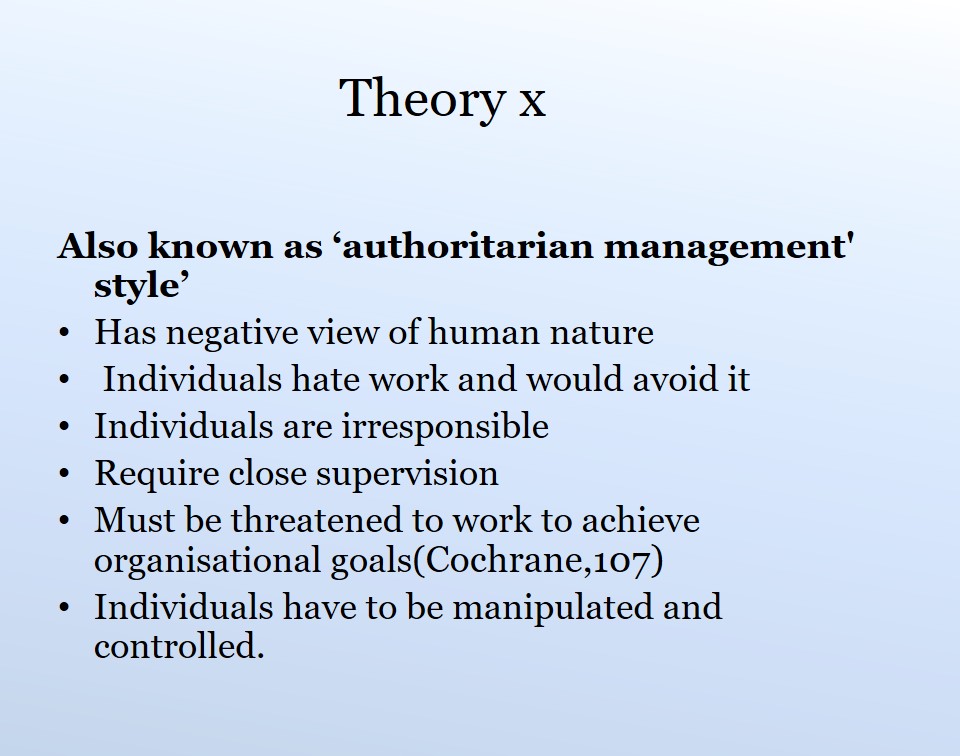
Theory Y
Also known as ‘participative management’ style:
- Individuals have a positive view of human nature.
- They are assumed to be industrious and Creative.
- Individuals are responsible.
- work is viewed to be as natural as work and play.
- People are not threatened with punishments. They instead have self-control and self-direction.
- They are Committed to objectives as a function of rewards associated with their achievement(Martin and Henderson 67).
- Individuals accept and seek responsibility.
- The people have capacity to use a high degree of imagination, ingenuity and creativity in solving problems in the organisation(Kaptein 342).
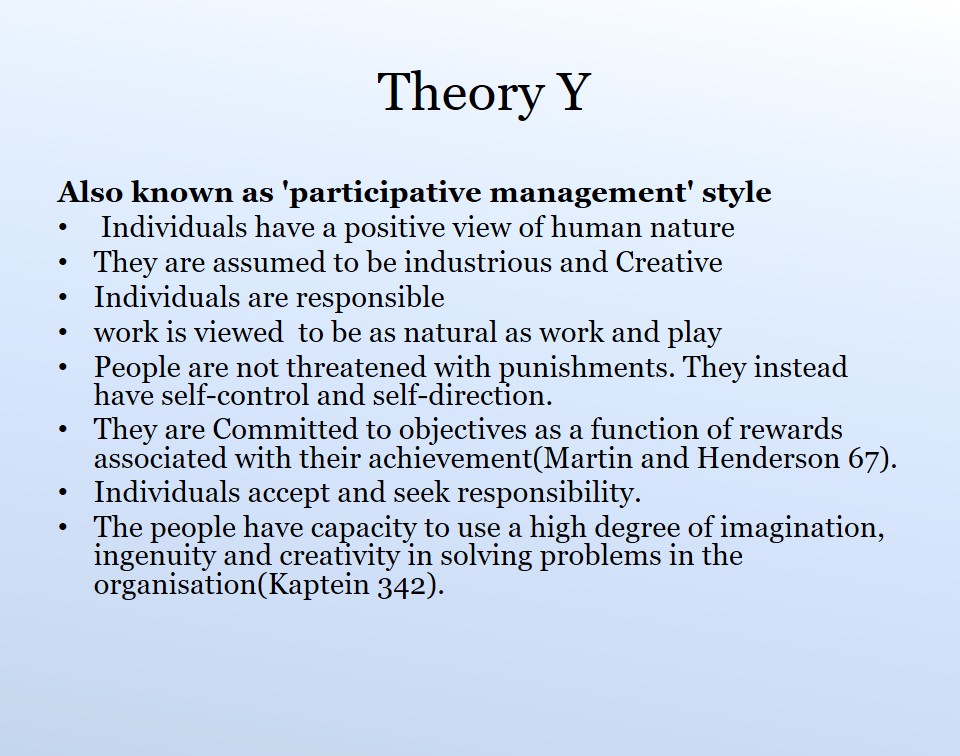
Evaluation
- How this model fits in my role as a recovery team leader?
- Looking at assumptions about human nature that are consistent with Theory X, this might exhibit a managerial style that is quite different from assumptions consistent with Y(Huber 123).
- Focusing on Theory X, communication flow in my department is likely to go downwards and will result in external control and l will end up acting as a dictator.
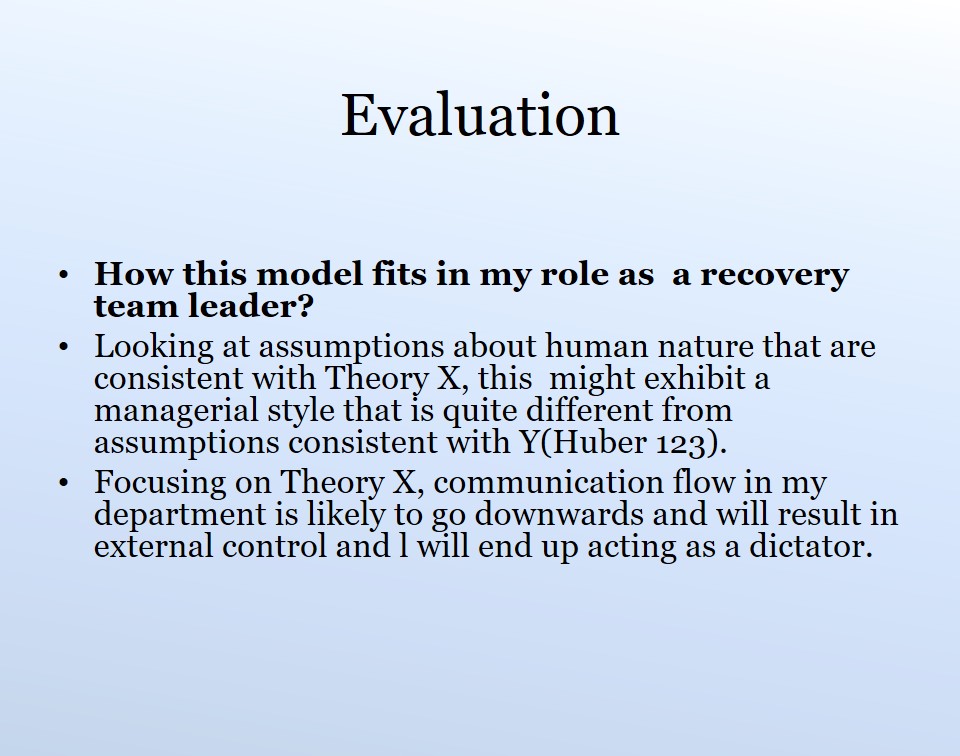
The XY Theory diagram and measurement tools below are adaptations of McGregor’s ideas for modern organizations, management and work(Broome, and Llewylen 167).
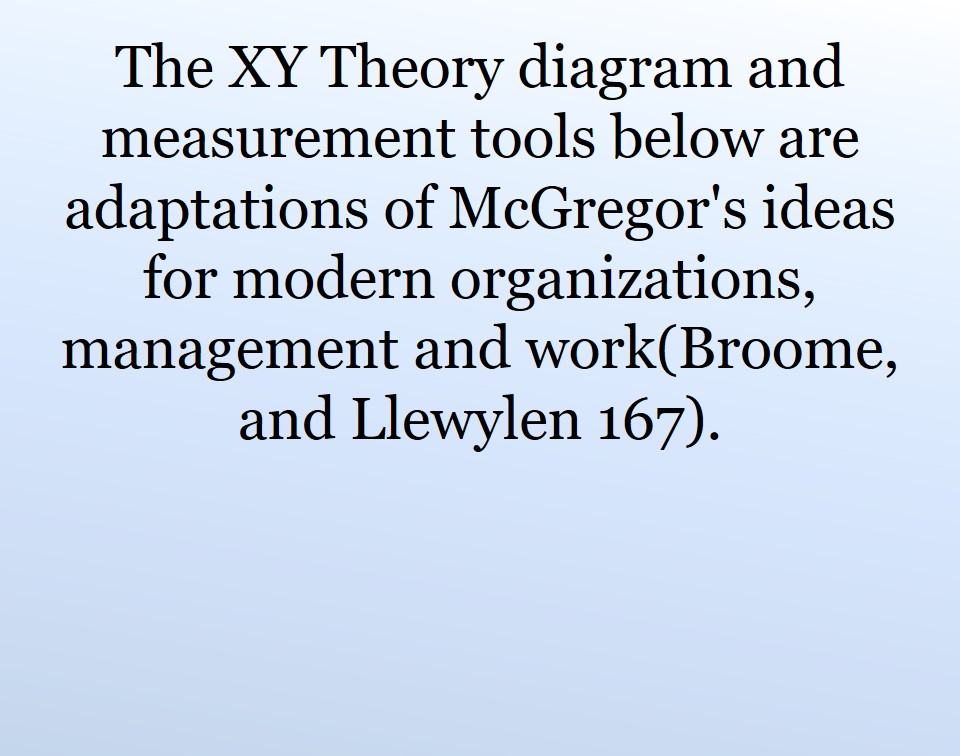
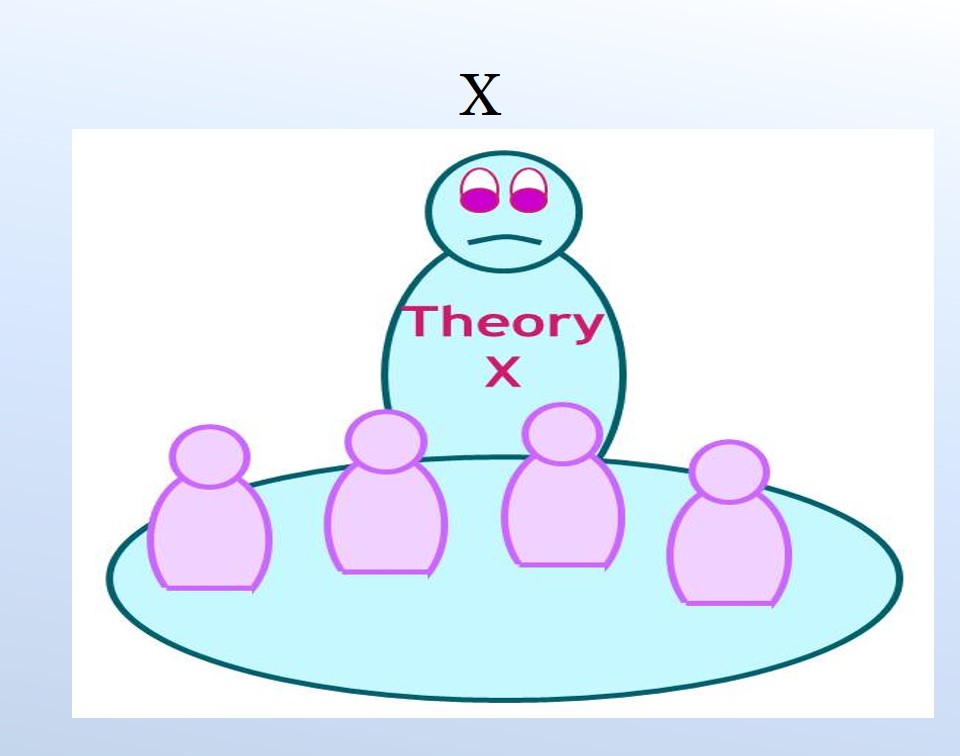
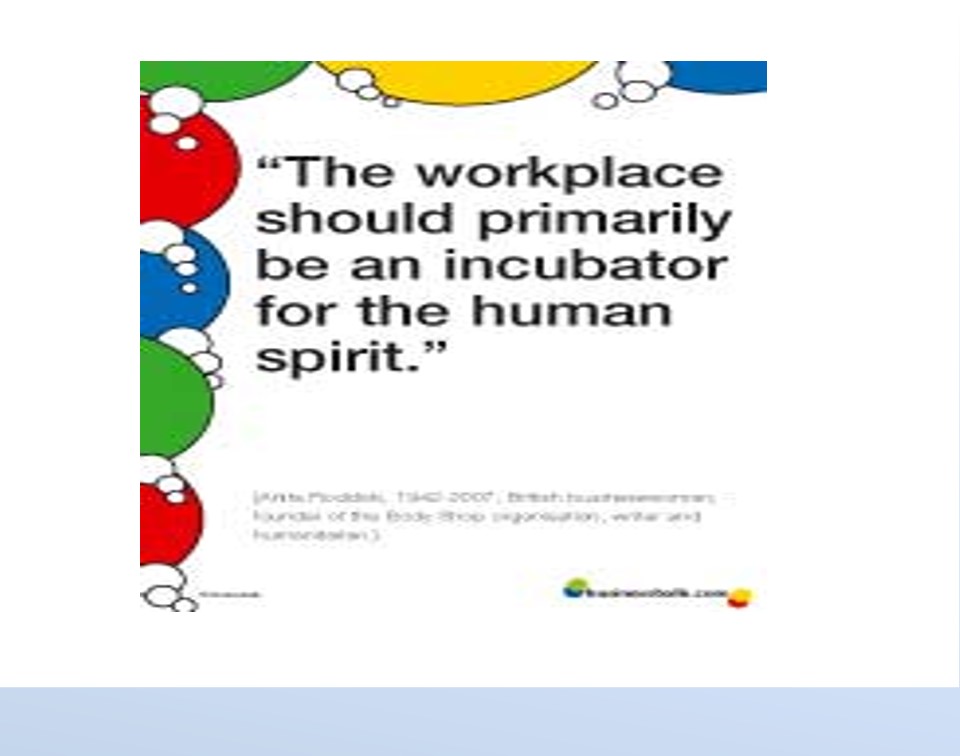
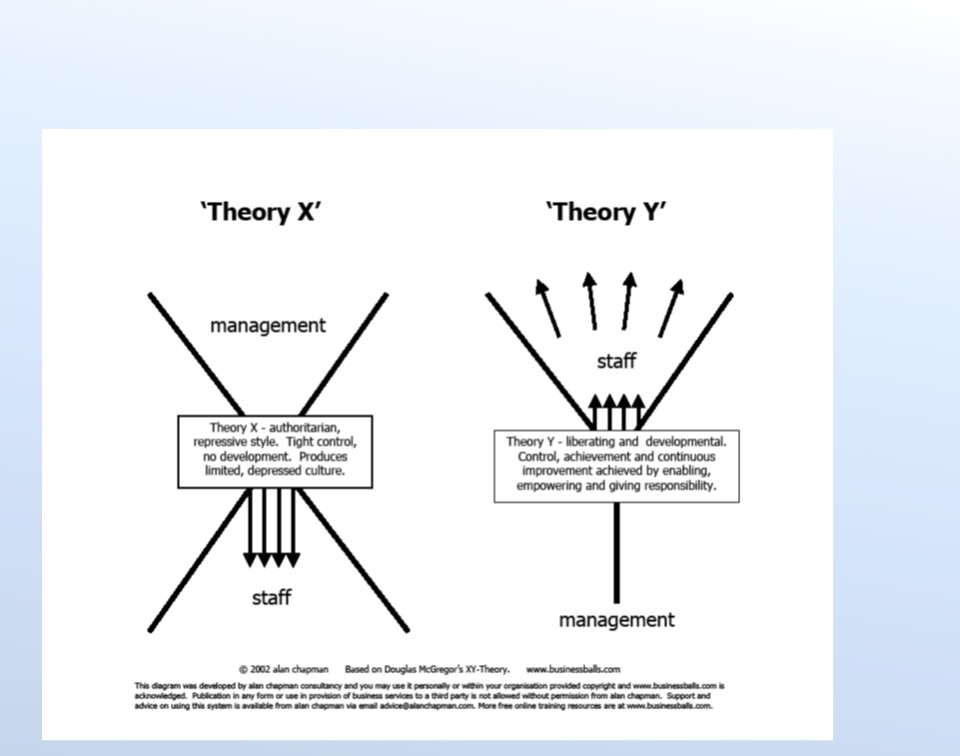
Effects on my management regarding planning
- Application of Theory X will force me to set up objectives with little or no participation from my colleagues(Handy 78).
- Theory Y on the other hand will lead to cooperative objectives with input from my colleagues. This will result in a higher commitment by subordinates to accomplish the shared objectives.
- problems will be solved as a team by examining the issue together and seeing where to improve(Paton and Mccalman 198).
- competent folders will be assigned to help identify staff who require training.
- Documentation will be filled in properly to help in early warning score, for quality care of our clients.
This will bring mere business if everyone is impressed.
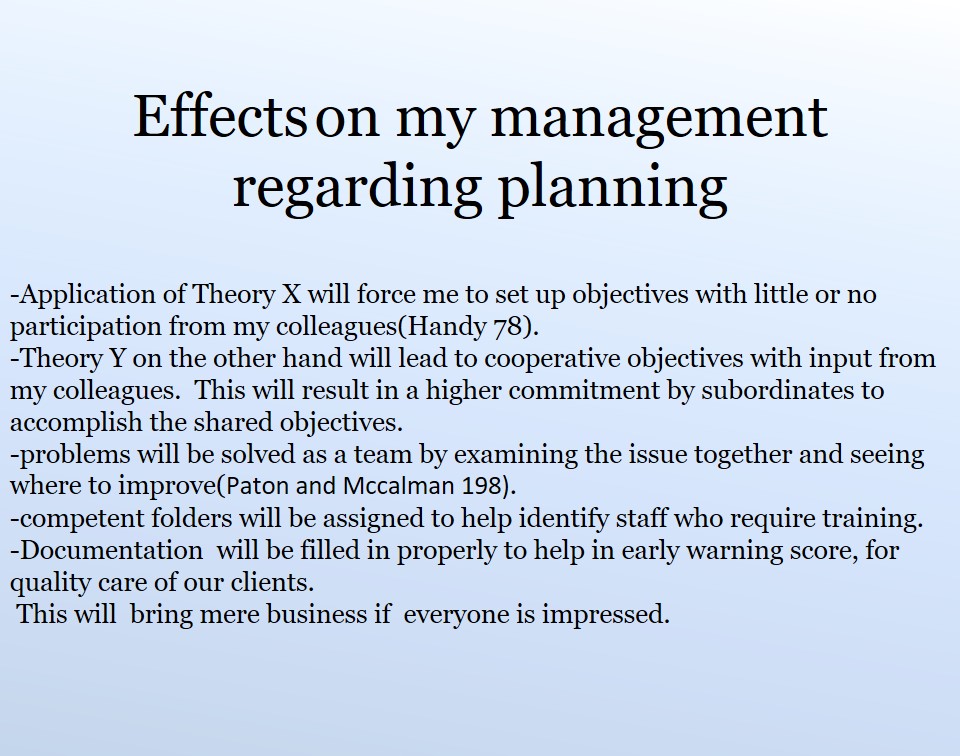
Works Cited
Cochrane, D. Management care and modernization. Oxford. 2001. Print.
Broome, A. and Llewylen, S. Process and Applications. 2002, Chapman and Hall.
Handy, C. Understanding Organizations. Penguin, 1999. London.
Huber D. Leadership and Nursing care management-2000, Philadelphia: Saunders ltd.
Kaptein, A. Health Psychology.-2004, Wiley-Blackwell.
Martin, V & Henderson E. Change management A guide to Effective implementation.-2000, McGrawhill Publishers.
Paton, A & Mccalman J. Change management a guide to effective implementation. Oxford. 2000. Print.